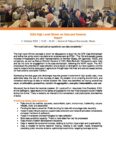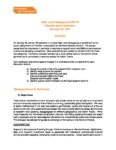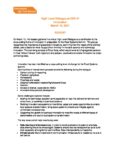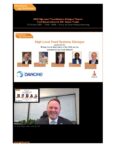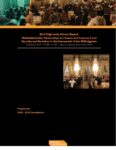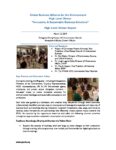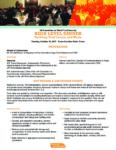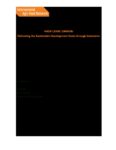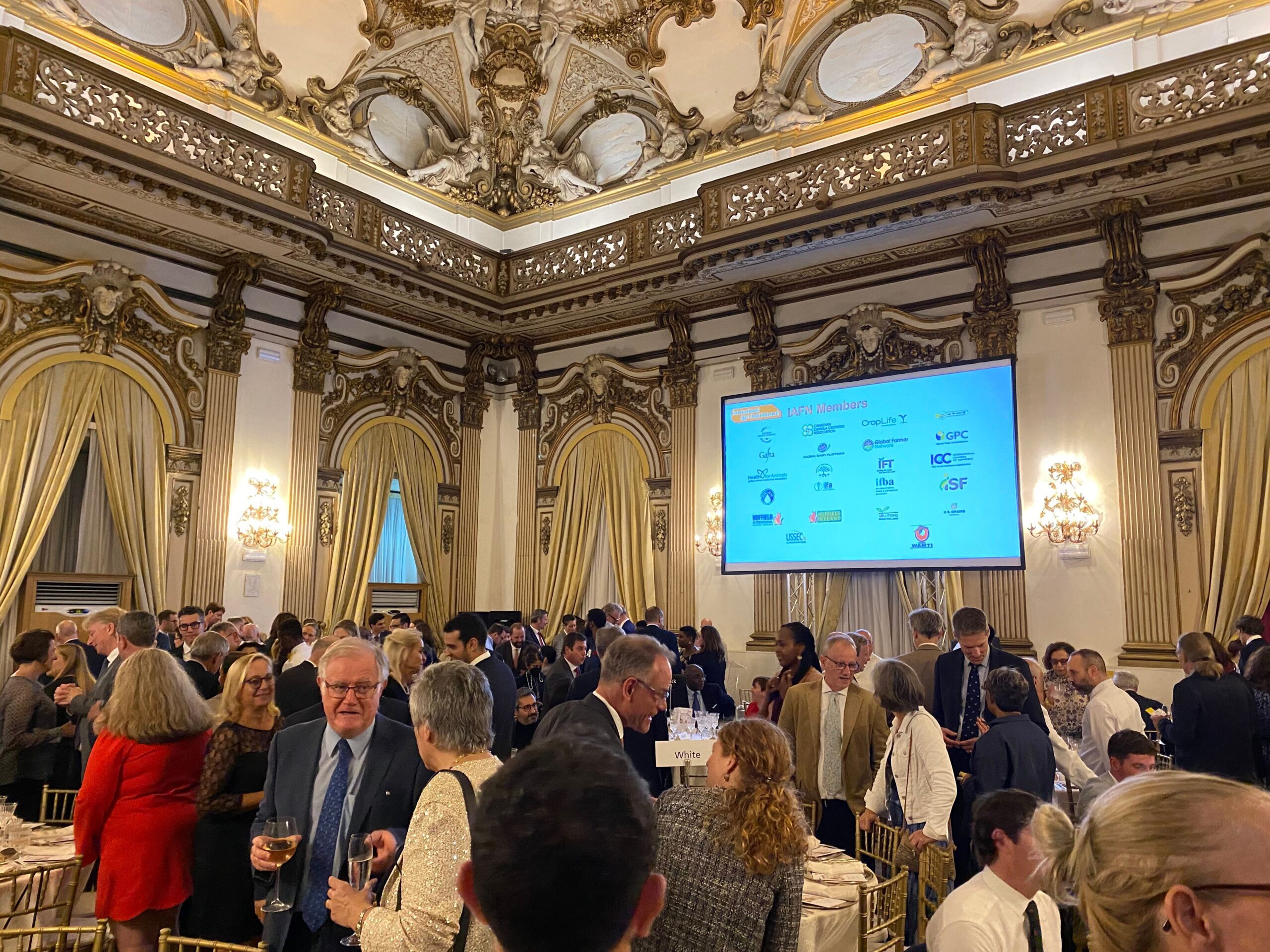
High Level Dinner
High Level Dinner
Since 2012, the Private Sector Mechanism has organized traditional High Level Dinners using in-person and hybrid formats. The High Level Dinner provides a forum for senior leadership from the private sector, UN organizations, civil society, and other sectors to interact with ambassadors and leaders from Rome-based agencies and discuss current challenges.
Topics discussed at previous High Level Dinners include data ownership, gender, innovation, finance, and food systems.
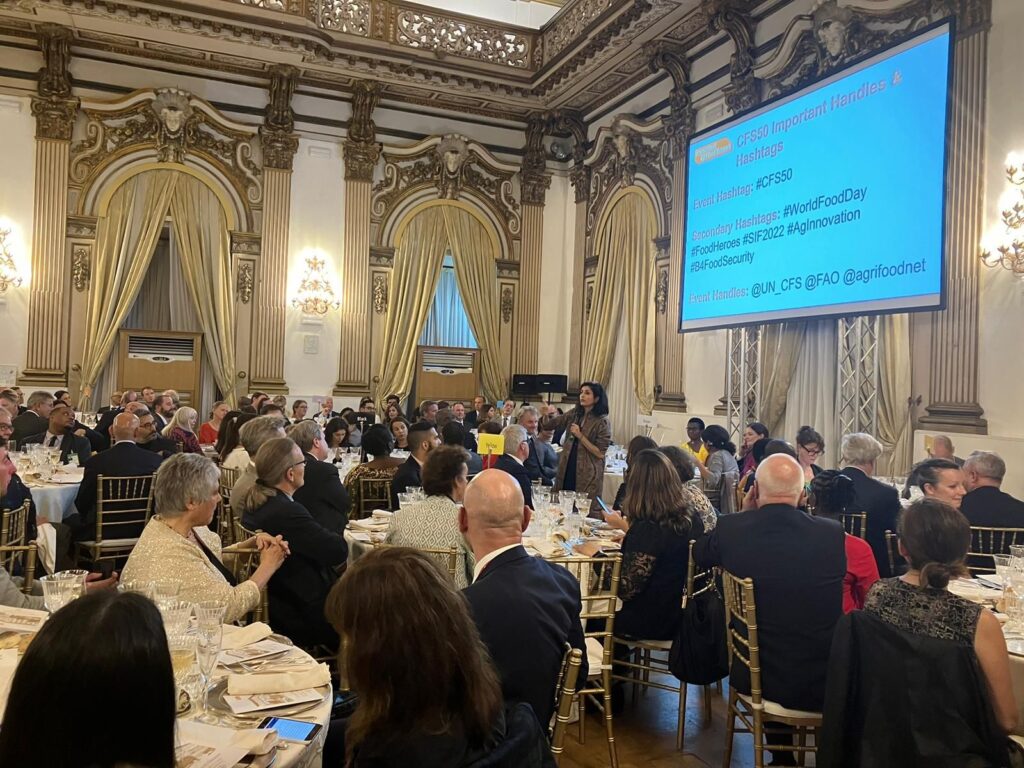
-
PSM – CFS High Level Dinner on Data Report – 2022
The High-Level Dinner provided a forum for discussions to feed into the CFS Data Workstream and further the policy recommendations for endorsement at CFS51. The 190 enthusiastic guests included Ambassadors and other representatives of Member States, UN agencies, NGOs, and companies, as well as Deputy Director General of FAO, Beth Bechdol. Discussions were lively and set the tone for engagement in the data workstream, following the HLPE report. The HLD showcased the potential for data collection and analysis to strengthen our food systems and the need to respond to the data gaps in agriculture through data-informed and science based policies for food security and better nutrition.
Download -
PSM – High Level Dialogue on Gender Report – 2021
The Private Sector Mechanism has been hosting a High Level Dinner for the last ten years during the UN Committee on World Food Security (CFS) to serve as a platform for interaction and dialogue between senior leadership from the private sector, civil society, UN Permanent Representatives to the Rome-based agencies. Usually, this event takes the form of a dinner in Rome. For the third time, it was held virtually as part of the Food Systems Dialogues. The High Level Dialogue on Gender complements the upcoming CFS workstream on Gender equality and women’s empowerment in the context of food security and nutrition, and is one of the levers of change of the Food Systems Summit.
Download -
PSM – High Level Dialogue on Innovation Report – 2021
The Private Sector Mechanism has been hosting a High-Level Dinner for the last ten years during the UN Committee on World Food Security (CFS) to serve as a platform for interaction and dialogue between senior leadership from the private sector, civil society, UN Permanent Representatives to the Rome-based agencies. Usually, this event takes the form of a dinner in Rome. For the third time, it was held virtually as part of the Food Systems Dialogues. The conversation of the groups recognized the importance in particular of activities to support youth and SMEs to get access to finance and derisking mechanisms. New partnerships are needed to provide funds into these key categories. The theme has been selected as a cross-cutting issue to the Summit and to generate some conversation outcomes across the Action Tracks.
Download -
PSM – High Level Dialogue on Finance Report – 2021
The Private Sector Mechanism has been hosting a High Level Dinner for the last ten years during the UN Committee on World Food Security (CFS) to serve as a platform for interaction and dialogue between senior leadership from the private sector, civil society, UN Permanent Representatives to the Rome-based agencies. Usually this event takes the form of a dinner in Rome. For the second time, it was held virtually as part of the Food Systems Dialogues. The conversation of the groups recognized the importance in particular of activities to support youth and SMEs to get access to finance and derisking mechanisms. New partnerships are needed to provide funds into these key categories. The theme has been selected as a cross-cutting issue to the Summit and to generate some conversation outcomes across the Action Tracks.
Download -
PSM – High Level Dinner 2020 Report – 2020
The Private Sector Mechanism has been hosting a High Level Dinner for the last ten years during the UN Committee on World Food Security (CFS) to serve as a platform for interaction and dialogue between senior leadership from the private sector, civil society, UN Permanent Representatives to the Rome-based agencies. Usually this event takes the form of a dinner in Rome, but for the first time it was held virtually as part of the Food Systems Dialogues. The conversation of the 200 participants focused on the 2021 Food Systems Summit’s Five Action Tracks. A successful sustainable development agenda requires partnerships between governments, the private sector and civil society. These shared actions must be built upon principles and values, a shared vision, and shared goals that place people and the planet at the centre.
Download -
PSM – CFS46 High Level Dinner Report – 2019
The High Level Dinner (HLD) provides a forum for senior leadership from the private sector and civil society to interact with Ambassadors, leaders and Permanent Representatives to the Rome-based agencies to discuss current opportunities and challenges in the context of the UN Committee on World Food Security (CFS). This year, the conversation focused on “Multistakeholder Partnerships to Finance and Improve Food Security and Nutrition in the framework of the 2030 Agenda”. A successful sustainable development agenda requires partnerships between governments, the private sector and civil society. These inclusive partnerships built upon principles and values, a shared vision, and shared goals that place people and the planet at the centre, are needed at the global, regional, national and local level.
Download -
PSM – UNEA 2019 High Level Dinner Report – 2019
During the evening, the 80 guests – including Ambassadors, Ministers of the Environment, Country Representatives, NGO representatives, UN & UN Environment agency employees, and private sector delegation members – discussed means to create innovative solutions for environmental challenges and sustainable consumption and production.
Download -
CFS44 – High Level Dinner – Report
During the evening, 190 Ambassadors, country representatives, NGO representatives, UN agency employees, and private sector delegation members discussed means to reduce food losses and waste in both developed and developing countries to achieve SDG 12.3.
Download -
CFS43 – High Level Dinner – Report
During the evening, 190 Ambassadors, country representatives, NGOs, scientists, UN Agencies, and private sector representatives discussed means to deliver the Sustainable Development Goals through Innovation. Each table was guided by a facilitator and rapporteur. Discussion was lively, and delegates came up with many concrete recommendations for fostering innovation in the implementation of the Sustainable Development Goals.
Download -
Responsible Agricultural Investments – PSM High Level Dinner 2013
The 2013 High Level Dinner on the Principles on Responsible Agricultural Investment saw a gathering of over 100 guests, including Ambassadors and permanent representatives, CEO’s, association representatives, donor organizations, and leaders from the Rome-based agencies. The objective was to discuss key policy recommendations needed to build better private sector engagement in the food value chain in developing countries. Business leaders were to present short case studies on their own experiences with RAI, which would then be compared and contrasted with those of diplomats and agency staff. Finally, all participants were asked to work together to identify commonalities within their experiences and efforts.
Download -
Responsible Agricultural Investments – PSM High Level Dinner 2012
The High Level Dinner on Priorities for Accelerating the Implementation of Responsible Agricultural Investment saw a gathering of 86 delegates including Ambassadors and permanent representatives, CEO’s, association representatives, donor organizations, leaders from the Rome-based agencies and World Bank. The objective of this event was to understand the key policy recommendations that are needed to build better private sector engagement in the food value chain in developing countries. The delegates were encouraged to consider what governments, international companies, local companies and donors need to do.
Download

